Feel-good food
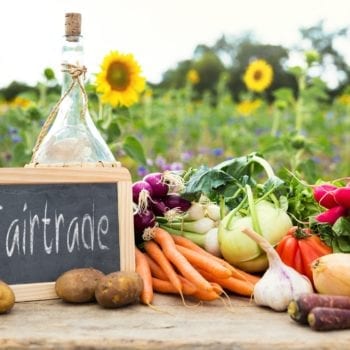
While Fairtrade has been in existence for over 25 years, its core values are now being adopted by many in the food industry with the focus sharply on sustainability. Fairtrade offers consumers a way to reduce poverty through our everyday shopping. Fionnuala Carolan looks at the brands that are working to help those in developing companies have a better standard of living
24 June 2021
Fairtrade is based on a partnership between some of the most disadvantaged farmers and workers in the developing world and the end consumer through the work of universal food producers. When farmers and workers can sell on Fairtrade terms, it provides them with an opportunity to improve their lives.
Small-scale farmers and workers are often marginalised by the global trade system. For farmers and workers, Fairtrade means prices that aim to cover the average costs of producing their crop sustainably. Farmers receive a minimum set price for their crops, as well as financial and technical support, safe working conditions, economic development, and education. The Fairtrade premium is an extra sum of money paid on top of the selling price to invest in business or community projects of their choice.
Decent working conditions and a ban on discrimination, forced labour and child labour are all elements of Fairtrade alongside an access to advance credit ahead of harvest time.
A survey conducted by Bewley’s in 2020 highlighted that eco-conscious customers are seeking transparency in the bean to cup process. There is a need for coffee companies to deliver great-tasting coffee that doesn’t harm the environment. While coffee and banana producers might have been the pioneers of Fairtrade practices many years ago, many others products such as chocolate and sugar suppliers have followed suit.
Q&A with… Jason Doyle, managing director, Bewley’s Ireland & UK
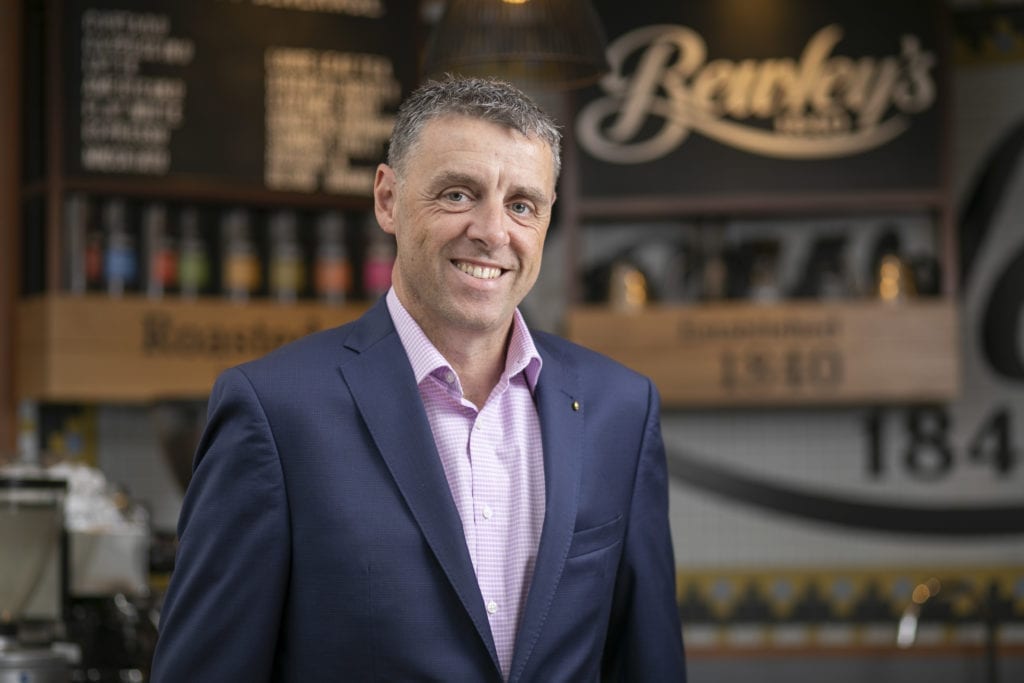
Jason Doyle
Q: Currently, one out of every two Fairtrade coffees sold in Ireland is a Bewley’s coffee. How has your work improved the lives of Fairtrade farmers and workers?
A: Bewley’s commitment to Fairtrade has been part of our ethos for over 25 years. We were the first business to bring Fairtrade produce into Ireland and each year we continue to look at ways we can further support the Fairtrade farmers who help us produce our coffee. The Fairtrade approach means that farmers are paid a fair price for their products, to enable them to sustain their own businesses and live better lives. Bewley’s contributes upwards of 1.5% of all Fairtrade premiums paid to coffee farmers globally.
Our work with Fairtrade goes beyond the premium, it’s about relationships and we ensure the farmers we work with are content and happy in their working environment and we strive to give back to these communities in a meaningful way. For example, in Colombia, Bewley’s contributes to an academy that is jointly funded with, Olam Specialty Coffee and the Fairtrade Foundation. The academy is located in the town of Planada and provides training and education for the community.
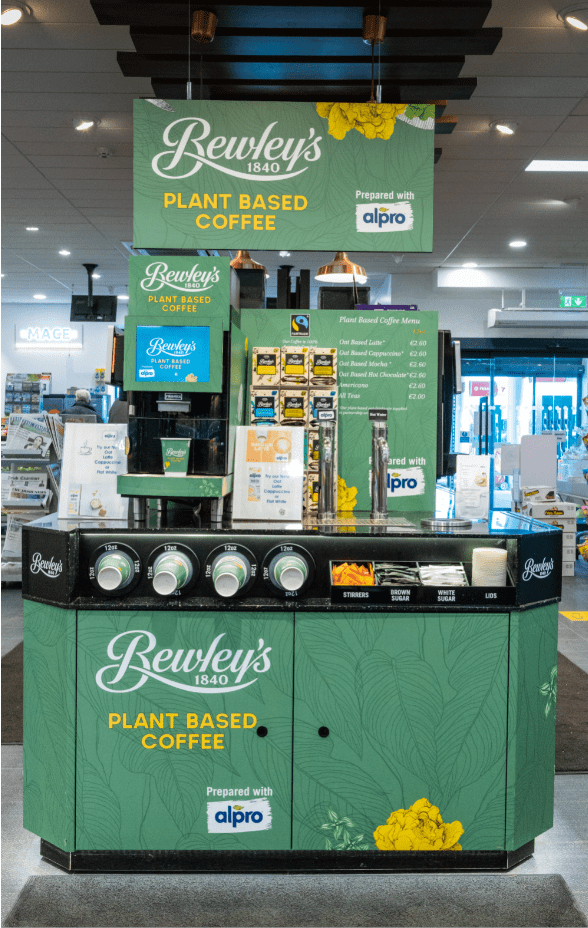 Q: How have consumers responded to Bewley’s status as a pioneer within the Fairtrade certified coffee sector?
Q: How have consumers responded to Bewley’s status as a pioneer within the Fairtrade certified coffee sector?
A: Our customers have a deep understanding of the importance of Fairtrade products, and when people become aware of the good work carried out, they start seeking out certified products. Given that Fairtrade has been part of our identity for over two decades, we believe consumers value our commitment to creating better and fairer lives for our partners.
We wear the Fairtrade mark with pride, from our premium coffee roasts to our hot chocolate, our customers are always assured that they are not only buying quality products but also helping to support coffee farmers and their communities.
Q: How significantly has this impacted customer loyalty during the past 25 years?
A: Our customers understand and see the importance of Fairtrade coffee. Given our long history as a Fairtrade business, Bewley’s customers can be confident that our coffee is produced ethically and this is one of the reasons we have been able to develop such a loyal customer base.
Consumers are passionate about doing their bit for the environment and choosing products that are both ethical and sustainable. We can see this from the research we did 2020, which highlighted that eco-conscious customers are seeking transparency in the bean to cup process. There is a need for coffee companies to deliver great-tasting coffee that doesn’t harm the environment. We believe our customers know and trust Bewley’s to deliver ethical products that doesn’t compromise on taste.
Q: What are the early results, customer and consumer response to the launch of Bewley’s plant-based coffee?
A: The new plant-based coffee menu has been one of the most exciting launches for Bewley’s in recent years. Plant based milk alternative is something that we have seen grow in popularity and we knew there was a gap for those looking for dairy-free coffee on the go. In fact, as part of the Bewley’s Annual Coffee Report 2020, it was found that two-thirds of Irish coffee drinkers want more than one milk offering when they purchase their daily coffee.
In response to our customers’ wishes, we teamed up with the market leader in milk alternatives, Alpro, to deliver a selection of delicious plant-based products that ensure the same great taste of Bewley’s coffee with diary alternative milk.
The response from customers and operators has been positive and we’re proud to be able to deliver this new offering to customers and look forward to seeing the menus introduces in operator locations across the country.
Q: Many Irish consumers now have much greater awareness and knowledge of different coffee varieties than they did 10/15 years ago. What new trends have affected your product offering and what is there to look forward to in the coffee industry over the coming years?
A: Over the past number of years, Ireland’s tastes have evolved and we’ve really seen a surge in coffee culture. With an increase in demand for speciality coffees, Bewley’s is committed to keeping our finger on the pulse of upcoming coffee trends and innovations to ensure we’re providing cutting edge coffee for our customers and operators.
We have introduced lots of exciting trends over the years, from the skinny latte in the early 2000s, to the more recent explosion in matcha coffee, we have adapted our offering throughout the decades.
In terms of unique trends, younger coffee drinkers are becoming more and more adventurous with tastes as they seek out innovative and exotic coffee flavours. Research compiled by Mintel in 2019 found that 66% of younger coffee drinkers are interested in trying coffee inspired by different countries for example Turkish coffee with cinnamon or Vietnamese iced coffee.
Fermentation is also something that has become popular over the past year or so. Lab fermented coffees have started to emerge with pioneers of the new method using fermentation to create tastier, more flavoursome beans. This innovation will deliver a natural solution to coffee’s inherent bitterness while being a more palatable and environmentally friendly alternative, suited to the tastes of all consumers.
Q: How significant are your marketing plans for the Bewley’s brand during the next year?
A: Our business has had to make significant changes over the past year and remain agile in the wake of the pandemic. However, one thing that will always stay the same is our ambitions to deliver high-quality products services to our customers and operator partners.
Over the next 12 months, we hope to tap into some of the coffee trends that we have seen across the globe and offer new and exciting experiences for our customer. In terms of new tastes, we have created some seasonal coffee beverages which will be included in our summer menu, like the Cotton Candy Latte and the Pina Co Latte Mocktail. These speciality beverages are currently available exclusively for Bewley’s trade partners nationwide.
100% slave free
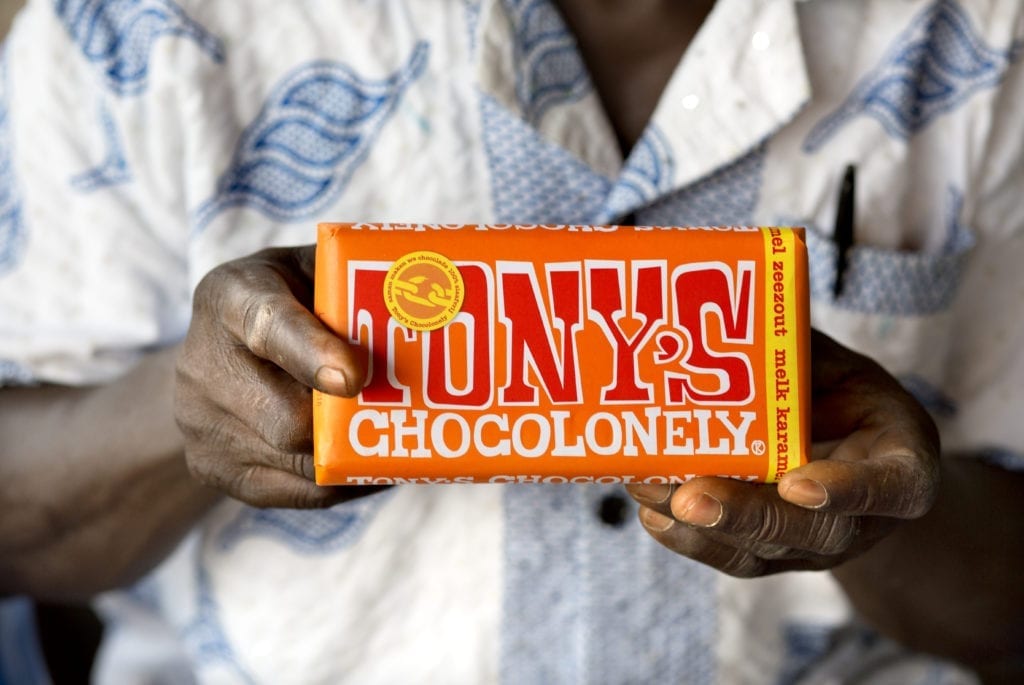
Tony’s Chocolonely has been proudly Fairtrade since it launched in The Netherlands in 2005
Tony’s Chocolonely is a social impact company on a mission to make all chocolate 100% slave free. Systemic poverty is the root cause of modern slavery and illegal child labour in Ghana and Ivory Coast where 60% of the world’s cocoa comes from, and big chocolate companies paying too little for cocoa fuels that poverty.
Tony’s Chocolonely has been proudly Fairtrade since it launched in the Netherlands in 2005. Fairtrade aligns with its belief that farmers should be able to earn a living income from their cocoa and that illegal labour has no place in this supply chain. But at Tony’s it goes further than most other Fairtrade brands; the company chooses to bridge the gap between the Fairtrade minimum price for cocoa and the Living Income Reference Price by paying an additional voluntary Tony’s premium.
This is one of five important sourcing principles Tony’s has in place including a fully traceable supply chain, having long-term commitments to buy cocoa from farmers and supporting cocoa cooperatives to professionalise. The company believes that when all five of these sourcing principles are in place you have the best chance of eradicating illegal labour in the cocoa supply chain and invite other companies to adopt them through its platform Tony’s Open Chain.
Fair share for everyone
Ben & Jerry’s takes fairness seriously. Whether it’s how the company treats employees, gives back to the community or dreams up new flavours for its customers, fairness factors in all that it does. That’s why it wants to make sure that its farmers get a fair deal too. The company supports the Fairtrade worldwide movement working to ensure that small-scale farmers in developing nations can make it in the ultra-competitive global marketplace.
It sources five Fairtrade Certified ingredients including sugar, bananas, coffee and vanilla. Ben & Jerry’s sources its sweet Fairtrade sugar from a variety of small-scale farmers, including those in the Belize Sugar Farmers’ Association. Belize has become a global role model in sugar production. Up to 85% of the population in some rural parts of the country depends on the sugar industry, which is why investments utilizing social premiums are so important. For example, newly implemented alternative pest-management practices helped save the Association’s sugar crop, while drastically reducing the application of harmful pesticides.
All of those delicious chunks of chocolate don’t find their way into its pints by accident. Ben & Jerry’s works with cocoa growers in Ivory Coast, which produces about 40% of the world’s cocoa (although most of the crop is not fair trade). Social premiums allowed one co-op to build a new medical clinic, hire a nurse, install solar panels and purchase a water pump. The company also sources Fairtrade cocoa from producers in Ghana, where it has invested in rural schools and scholarships for children.
Vanilla is an essential ingredient in dozens of Ben & Jerry’s favourite flavours. Though most of the world’s vanilla is grown in Madagascar, many farmers there are struggling to make a living. As we’ve seen around the globe, when farms fail, communities often follow. Fairtrade prices help end this cycle. One of the co-ops it works with in Madagascar put its social premiums to use rehabilitating a health centre, repairing a school and building an office. Ben & Jerry’s also work with Fairtrade vanilla farmers in Uganda who have begun to create independent networks that increase their sustainability and maintain their way of life.
The Huatusco Coffee Cooperative in Mexico supplies Ben & Jerry’s with much of its Fairtrade coffee—since 2010, it has sourced more than 300,000 pounds of coffee from them for its flavours. These social premiums are helping the cooperative’s 1,465 farmers, along with their families and communities, in many ways. It has contributed to the construction of a medical centre, a library and schools; the development of scholarships and education projects; and the production of 400 tons of compost.
Everybody loves bananas, which is one reason why Ben & Jerry’s has sourced more than 50 metric tons of Fairtrade bananas from the El Guabo Cooperative in Ecuador’s El Oro province in 2014. This purchase of all those bananas helped the co-op’s 154 farmers complete various crucial projects, like providing scholarships to local children, helping children in need with language and physical therapy, and making healthcare more readily available to farmers, workers, and their families. Knowing that all the delectable stuff that goes into its flavours is Fairtrade Certified makes Ben & Jerry’s taste all the sweeter. Every time shoppers pick up a product with the Fairtrade mark (the green and blue symbol displayed on each of its pints), they are helping small-scale farmers and their communities survive and succeed.
Bananas about fairness!
An ongoing commitment to its growers and their communities has led Fyffes to become a pioneer in Fairtrade. Today, Fyffes is Europe’s biggest supplier of Fairtrade Certified bananas and applies the principles of fair trade to all its fruit production, not just the ones with a Fairtrade label. The Fairtrade certification ensures fair prices to its farmers, protects their rights and contributes to the creation of a sustainable living and working environment where families and communities can thrive.
Fairtrade guarantees a fair price and quality-of-life improvement through a social premium fund. It not only provides a way to improve growers’ income and workers’ wages, but also provides infrastructure and support for self-governed life improvement projects. In addition, it encourages farming and business practices that ensure environmental sustainability for future generations.
Through Fairtrade, farmers receive a minimum set price for their crops, as well as financial and technical support, safe working conditions, economic development, and education. They become stakeholders and reinvest profits to strengthen their business and communities with projects such as health clinics, schools, housing, and leadership training. Fairtrade certification also ensures that farmers obey all internationally monitored environmental standards and implement sustainable practices.
By buying Fairtrade Certified products, you help support programs that make the world a better place. Fairtrade Certified bananas are fruit of the highest quality. Grown according to Fairtrade practices, observing strict farming standards while ensuring fair pricing and labour practices, these bananas don’t just taste great, they feel great.
For every single box of Fairtrade certified bananas shipped, a fixed amount – the social premium – is invested in social and economic projects including training and education, housing, infrastructure, and environmental protection to ensure future sustainability, while consumers enjoy the best fruit and a peace of mind that comes from helping improve farming communities and preserves the planet.



 Print
Print

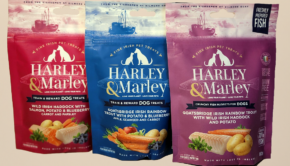




Fans 0
Followers